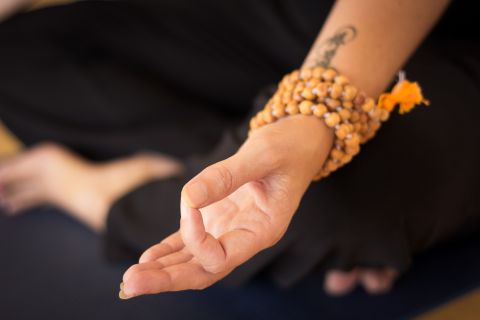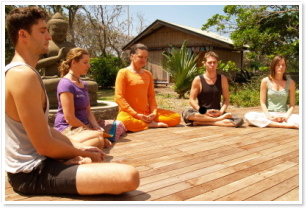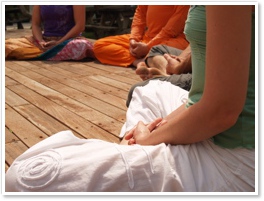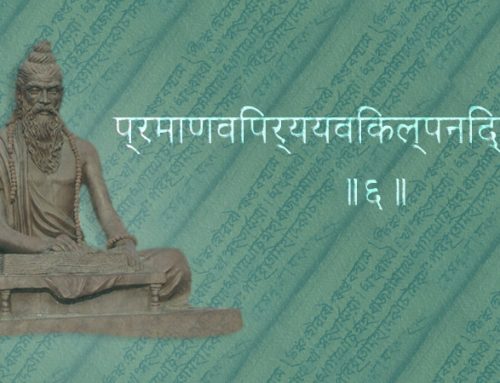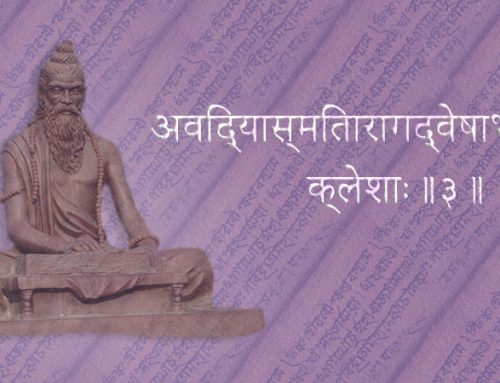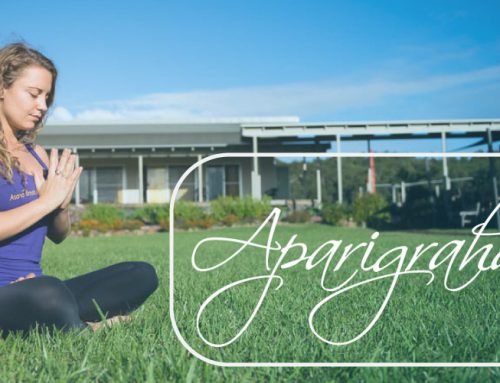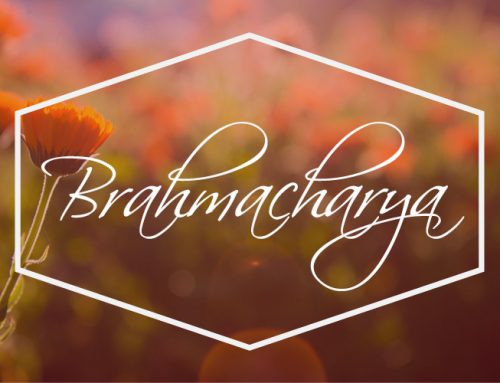Written by Dana Burrows
Meditation is no longer just the practice of yogis or monks. People from all walks of life are taking up meditation to cure a multitude of ills, with the practice helping many who suffer from stress, high blood pressure, migraines, hypertension, chronic pain, irritable bowel syndrome, anxiety and depression. Scientists are proving what ancient gurus knew all along – meditation is the secret to good health and happiness. Swami Pujan, Byron Yoga Centre’s philosophy teacher, guides those wanting to go further with their meditation practice and learn to teach this “antidote to worry” to others.
As is widely known among yoga students, meditation is a pathway to the present moment. Through meditation we can become more grounded in the here and now. Why is this important in life? “Because life happens now,” explains Swami Pujan. “Life doesn’t happen in the future or the past. Whatever we want in life can only happen if we are present. Because when we want to be happy, it can only happen in the present. If we want to be fulfilled, creative, loving, only this happens in the present. Unfortunately when we move away in our minds into the future or the past, we are missing what’s happening now. Meditation is the tool to really live a more fulfilled life. A life that is not controlled by our constant fluctuations of the mind. Most of the people now they complain about being so busy, thinking all the time, worried all the time. Worries are nothing other than thoughts. Meditation is the antidote to that.”
Lucky for those of us who crave variety in life, meditation comes in all forms. “We often have this idea that meditation is sitting silently in lotus and watching our breath,” Pujan explains. “That is just one of 112 different meditation techniques. In other words, there is a form of meditation for everyone.”
In his meditation training, Pujan introduces many different meditative techniques: active meditations, passive meditations, meditations with eyes opened and closed, visualisations and concentrations.
For something so natural – a connection back to our essential self and the present moment – why is meditation so hard? Swami Pujan offers this advice for those who become discouraged in their practice: “Don’t despair and quit! Find a meditation teacher who can actually guide you into all the different meditation techniques that could work for you. It’s not like one thing fits all in meditation. The quiet mind is possible for everyone. But a quiet mind – just to make it clear – has to be balanced with technique and knowledge. It’s not good to just have a meditation technique if you don’t know what you are really doing. Because you don’t want to kill your thoughts, you don’t want to stop your thoughts.”
Pujan developed his meditation retreat after many Byron Yoga Centre teacher trainees expressed a yearning for deeper instruction around meditation. “I found that in a yoga teacher training we don’t have time to really go into it – we don’t have the space. In this course you will be able to really dive deeper into the whole philosophy and structure of meditation.”
Swami Pujan leads a 5-day meditation residential immersion for anyone who wants to broaden their understanding and personal practice of meditation. Held in Byron Bay in September 2014, Pujan will teach students how to share meditation with others in any environment, not just the yoga studio. “During the immersion, we focus first on knowledge about meditation, then the various techniques and finally how to bring that in combination with your own experience into the wider community.”
With over 25 years learning and practicing various forms of meditation, Swami Pujan knows first hand that meditation benefits every aspect of life. “There’s really no area in your professional or private life where you cannot put a more quiet centeredness into your life,” he says. “The applications are huge. The benefits are clinically proven. Meditation helps to overcome anxiety or any fear-based actions. It is good to build concentration. On a higher level, it is a tool to actually find out who you ultimately are. It is really a tool for a more fulfilled and happier life.”

